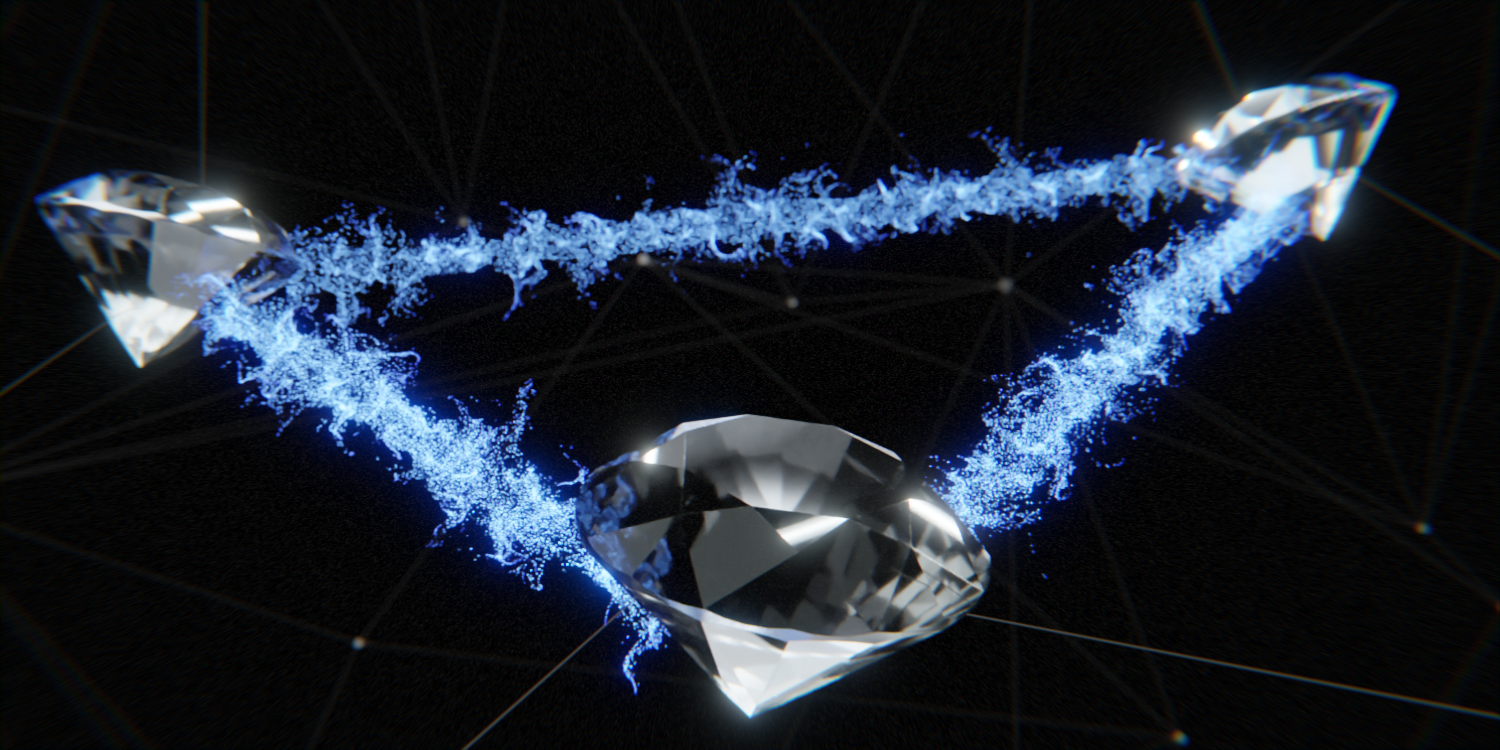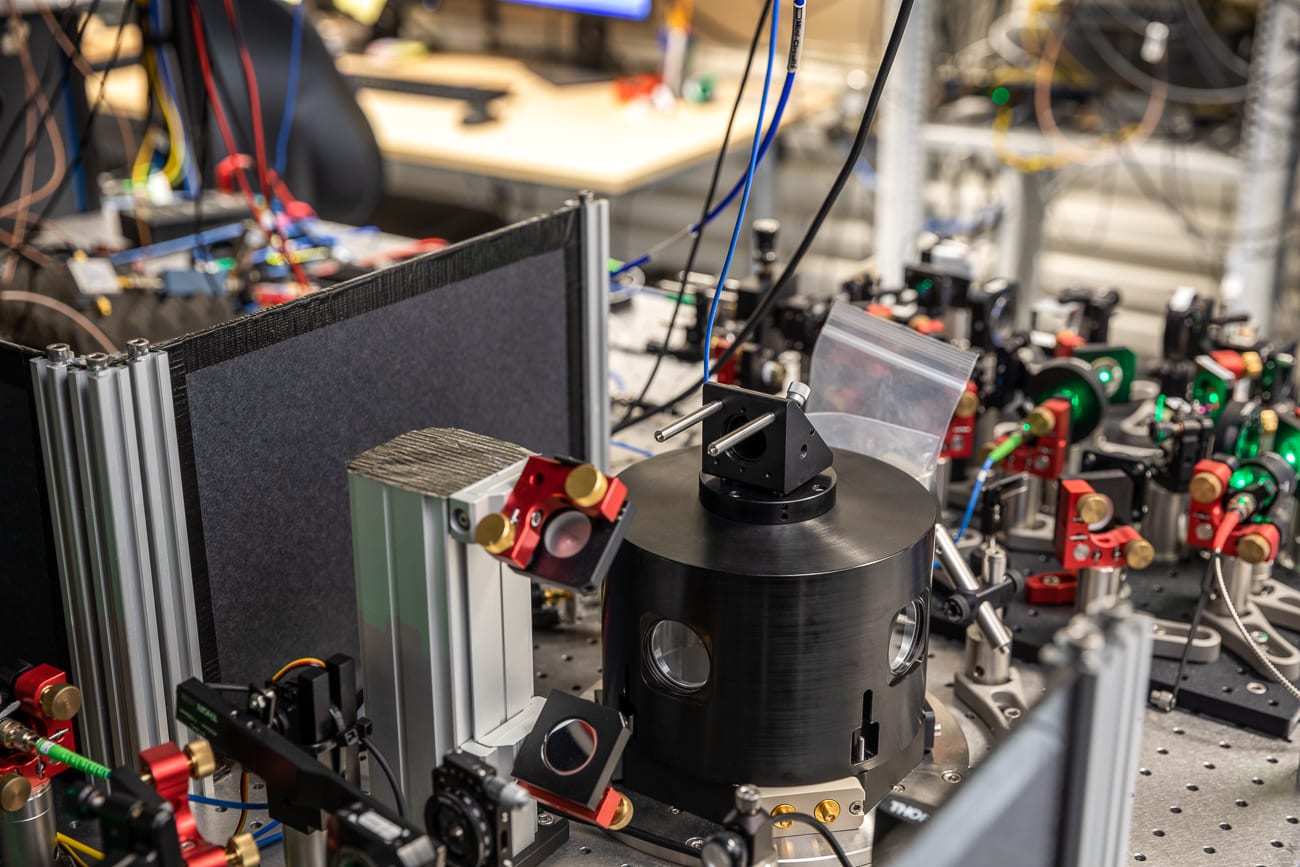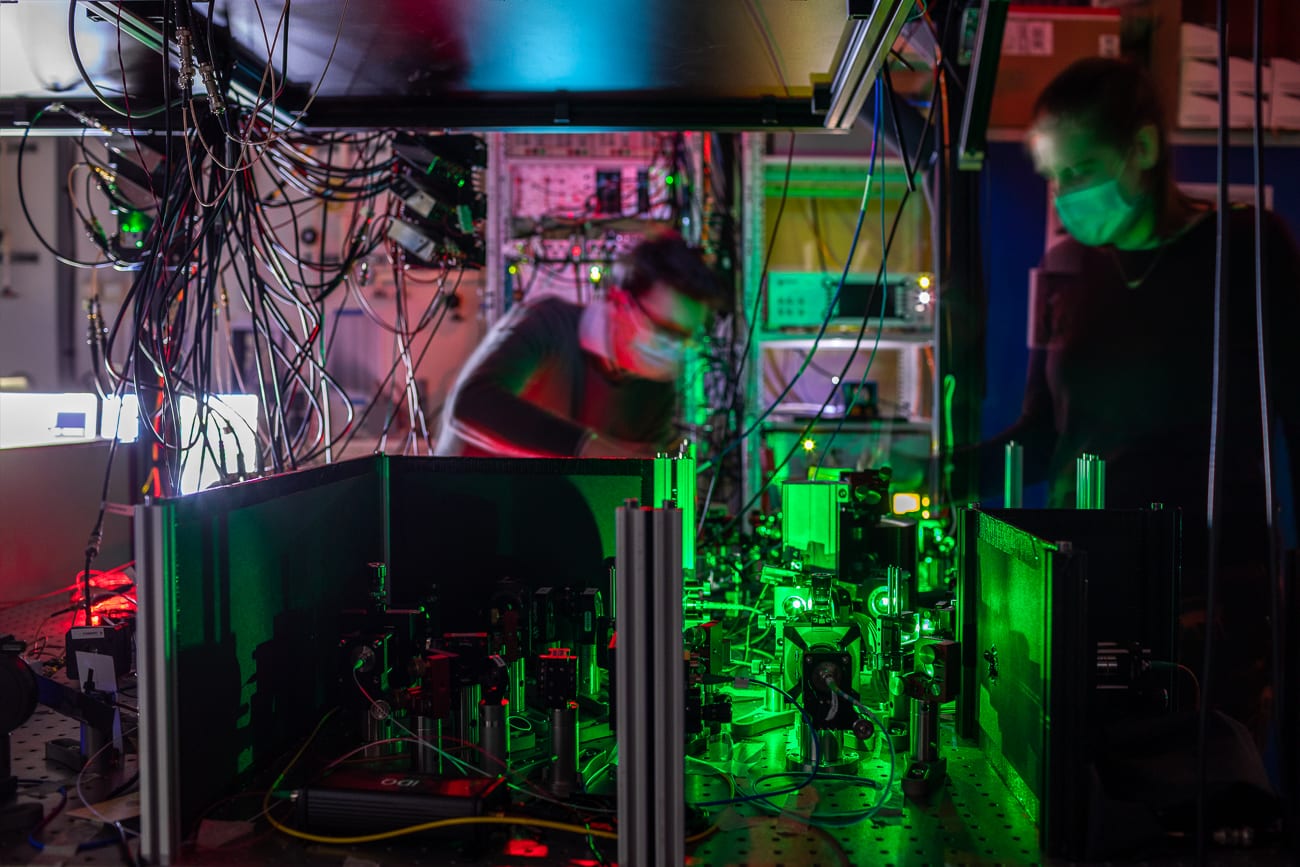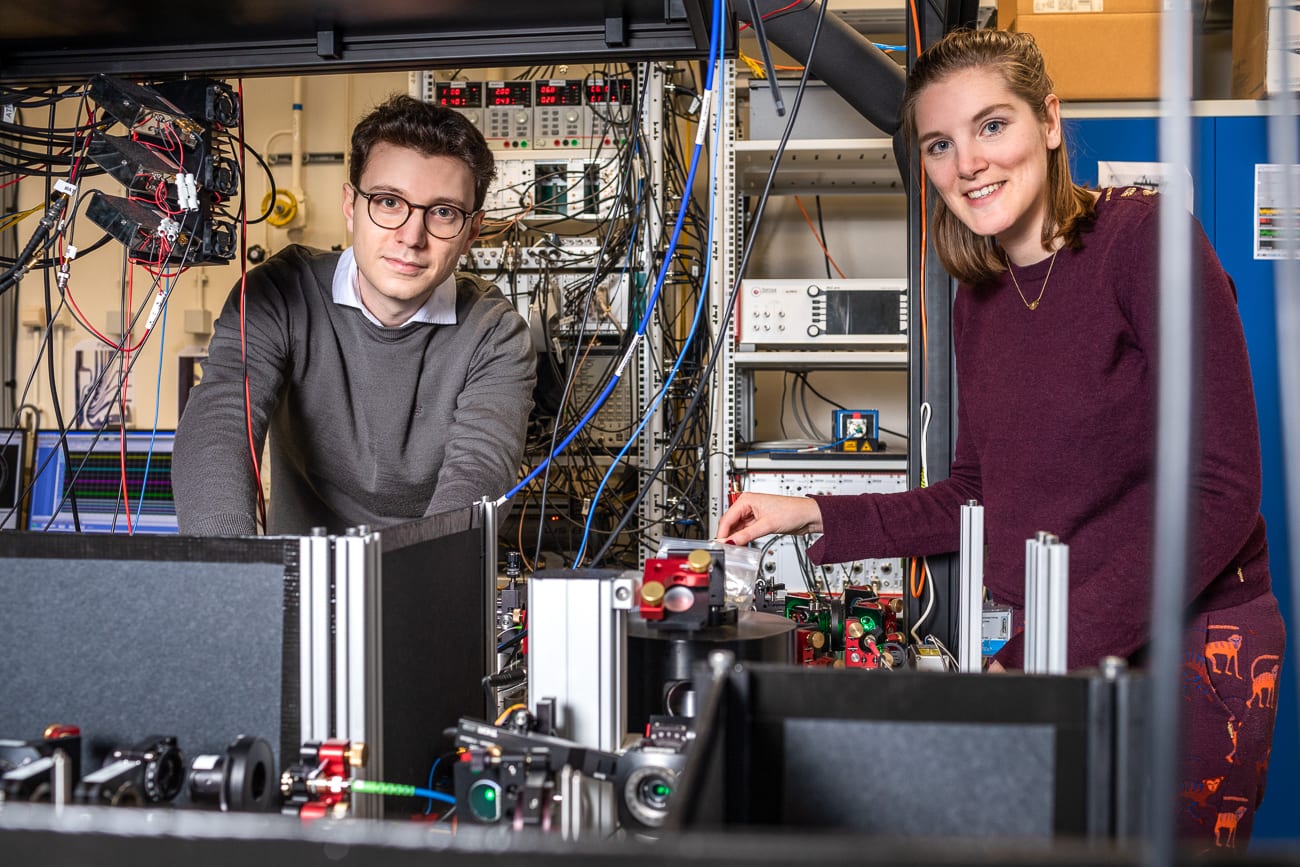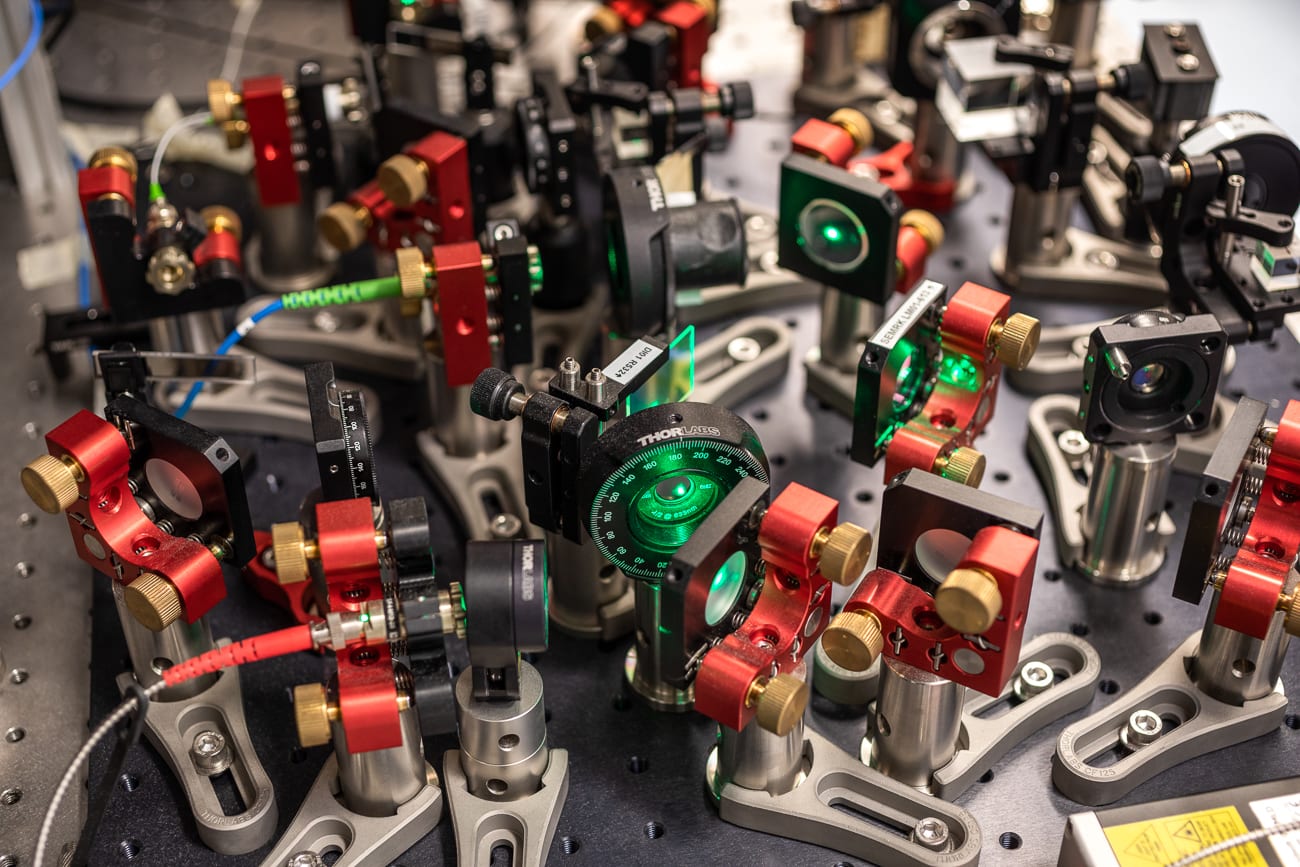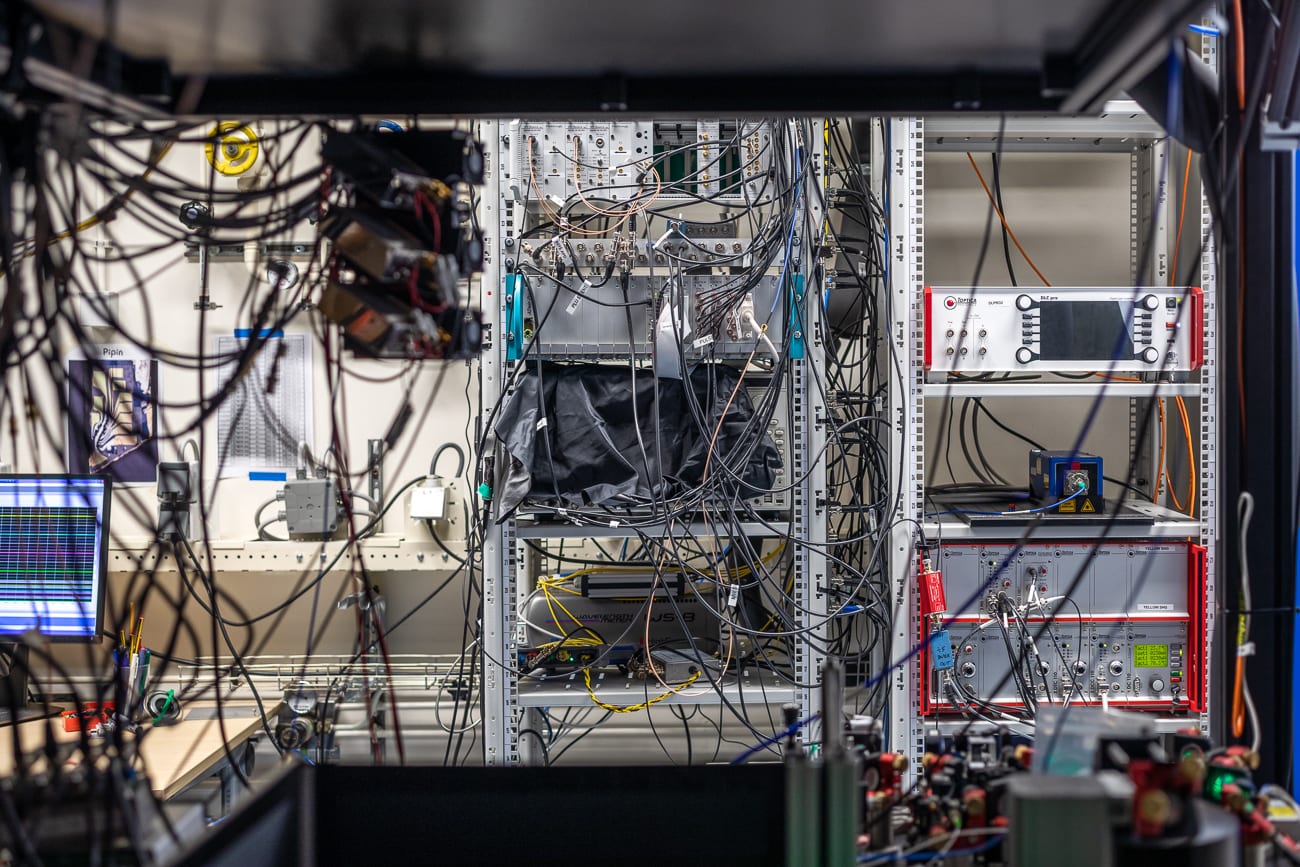Multinode Quantum Network - 2021
We have built and demonstrated the first entanglement-based network connecting multiple quantum processors. Our quantum network is composed of three independent nodes, called Alice, Bob and Charlie, based on diamond nitrogen-vacancy centres. We achieved proof-of-principle demonstration of two key quantum network protocols: genuine multipartite entanglement distribution across all the nodes and any-to-any connectivity via entanglement swapping. The results were published on April 15 in Science.
Below you can find relevant articles, an image gallery and an animation. Please click on the images to access the high-resolution version. The material may be used free of royalties for purposes of news items when adding content authorship.
Press Release and News items
- Press release of the TU Delft: English, Dutch
- QuTech (Article)
- Nature (News & Views)
- Physics World (Article)
- Volkskrant (News, Reportage)
- NRC (News)
- The Academic Times (News)
- Cosmos Magazine (News)
- ZDNet (News)
- New Scientist (News)
- Medium.com (News)
- ORF (News)
- Delta – TUDelft (News)
- Inverse (News)
- SVT (News)
- Live Science (News)
- KIJK (Article, Website)
- InfoQ (News)
- Project Management Institute, top 50 most influential projects 2021
Scientific article
Realization of a multinode quantum network of remote solid-state qubits
M. Pompili* S. L. N. Hermans*, S. Baier*, H. K. C. Beukers, P. C. Humphreys, R. N. Schouten,
R. F. L. Vermeulen, M. J. Tiggelman, L. dos Santos Martins, B. Dirkse, S. Wehner, R. Hanson
Science, Vol. 372, Issue 6539, published online April 15, 2021.
DOI: 10.1126/science.abg1919
link to online article
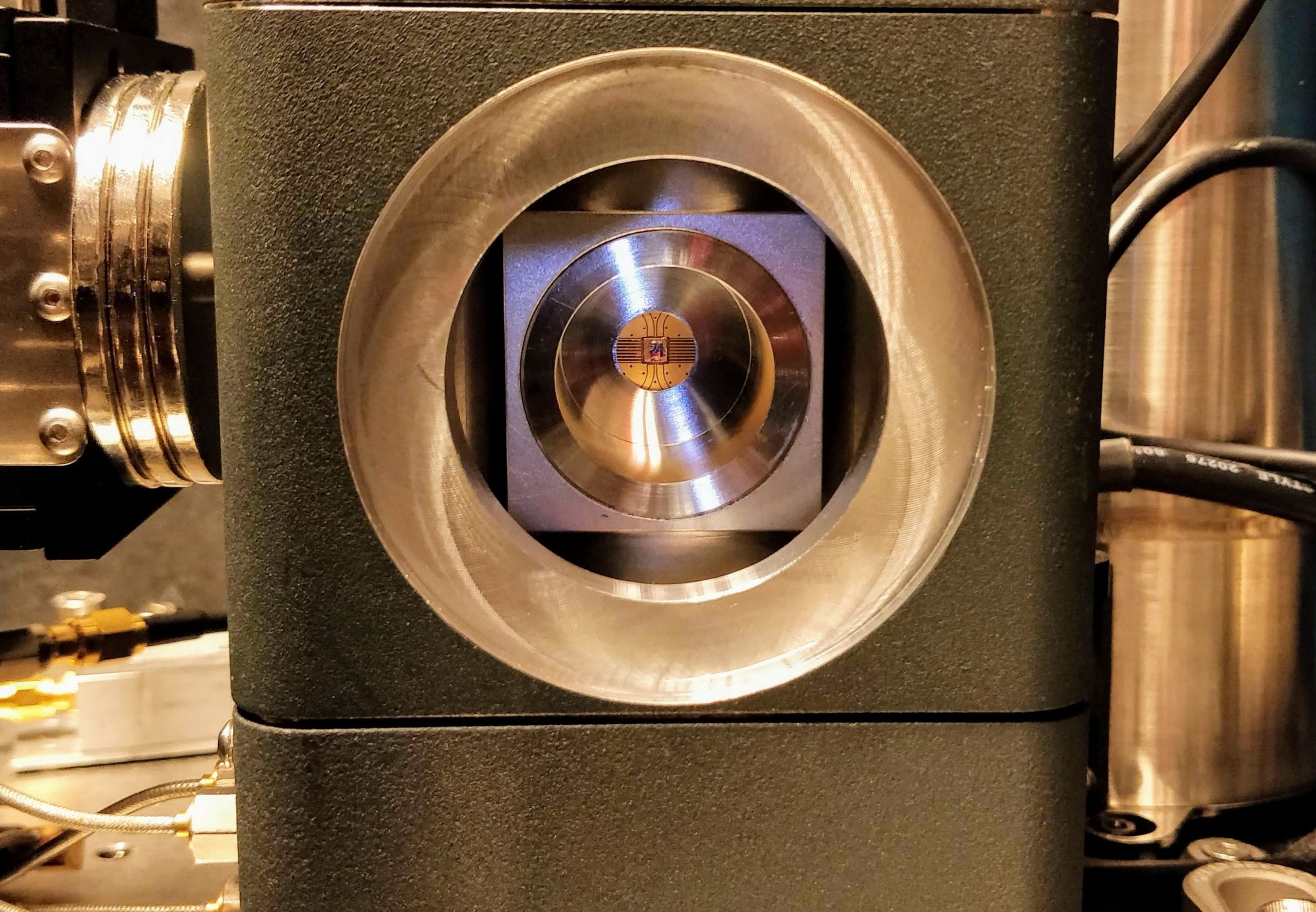
The diamond chip of the middle node of the quantum network – Bob – is installed in a cryogenic confocal microscope. At the centre, it is possible to see the printed circuit board that is used to deliver electrical signals to the qubits. On the left, permanent magnets are carefully positioned to align the magnetic field. Credit: QuTech.
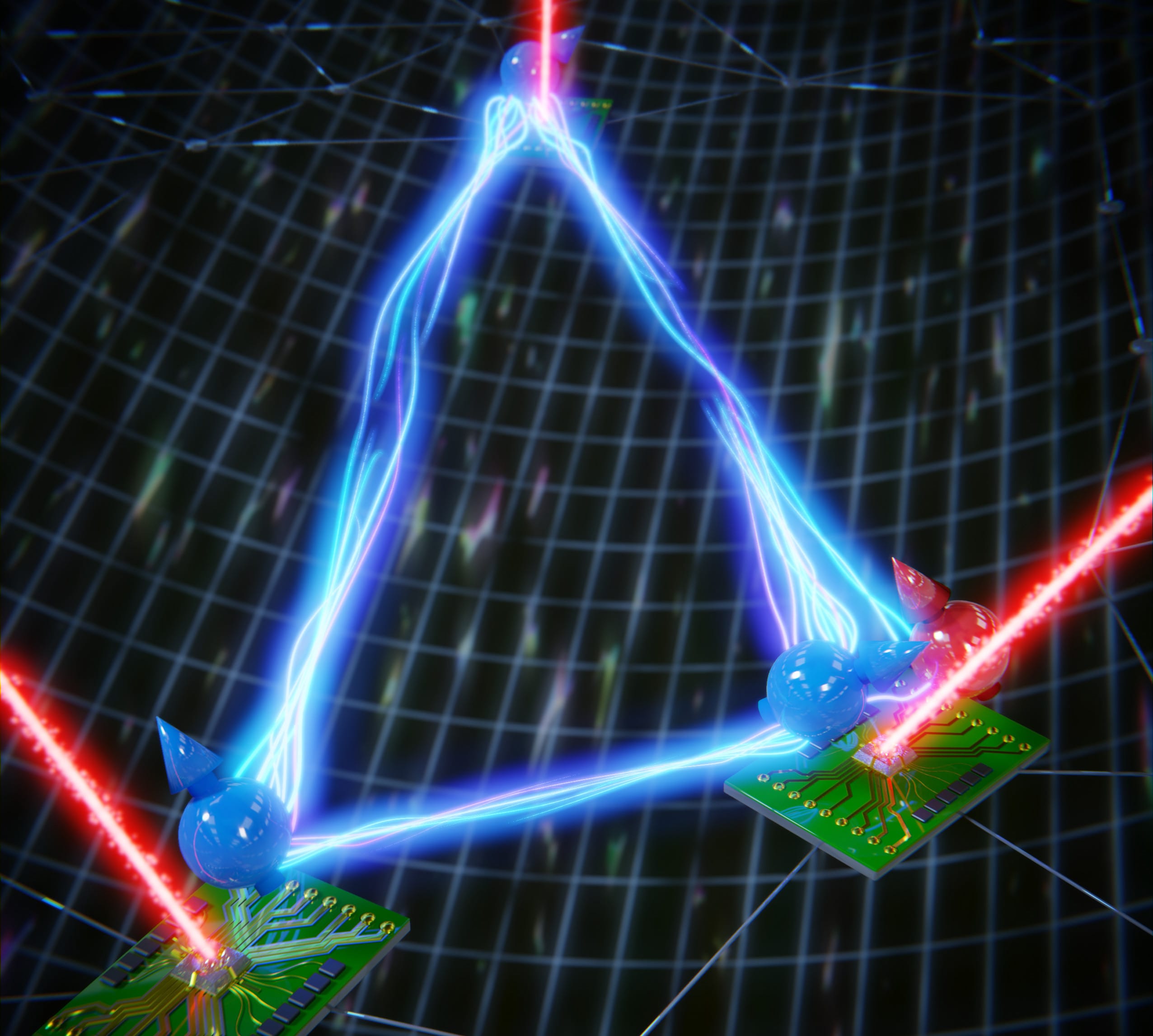
Artist’s impression of our three-node quantum network. The quantum bits are housed in a small piece of diamond which is mounted on a PCB (printed circuit board) to deliver electrical signals. Laser beams enable the control and readout of quantum information. The blue lines represent entanglement across the nodes. Credit: Scixel for QuTech.
Video - A Multinode Quantum Network explained
Credit: Slimpot for QuTech.
